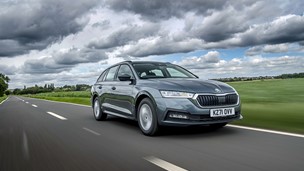If you want to get the best price for a new car, you have to haggle. Manufacturers are planning to move towards a more standardised way of pricing in the future, but for now when it comes to getting a new car, you can usually negotiate with the dealership and car salesperson to get a better price than the one they originally quote you.
Do your homework
Firstly, be sure you know what type of car you want to buy. You can use our car buying guides to help you decide on budget, shortlist, test drives, and purchase options to decide what’s best for you.
Then once you know the model you want, look at the price list. On our site you can see the Maximum Retail Price (MRP) for every model choice, and every manufacturer. This helps you to get an initial feel for the full range of prices, and what to work from.
Be specific
Then decide exactly what type of model you want: the engine and size, the fuel type, the trim, the colour you want. The more specific you are in what you want, the stronger you are in the showroom, as you won’t automatically be directed to cheaper alternative specs or options if you try to get a cheaper price.
If you stick on a precise choice, and avoid the offer of having extras like accessories thrown in, you can focus on the singular job of getting the best price for the exact model you want. (And then you can always bring up alternative models or extras afterwards if you want to open up the negotiation wider, or use suggestions to your advantage). But choosing the car you want, and haggling down to the lowest price is best, rather than letting yourself get easily redirected.
A salesperson suggesting an alternative model will be more beneficial to them than to you, and unless what they suggest really is something you would consider, then you’ll just end up getting a model without the features that you want. So it’s best to stick to your guns, and if they don’t have that exact model and spec, then you can use that to your advantage in negotiating a good price for the nearest equivalent, if you are prepared to do so.
See what deals they currently have
See if the manufacturer has any specific deals available that will help you. Many have financial incentives such as discounts, deposit contributions, or reduced rate finance on certain models.
These latest deals and offers might work out best for you, and could represent the best saving or price that you can get.
Also, they may have special editions of the model you want, with spec or extras that you want, that are on sale for a limited time and represent great value for the extras included, if it’s the model and spec you want.
Be nice

Negotiation can feel awkward for many, especially when it doesn’t seem particularly British or proper of us. The vast majority of things we buy day-to-day have a set price. But it’s normal and highly recommended to haggle and get yourself the best deal for a car, when there is the scope for it in the showroom. However, this doesn’t mean you have to play hardball either. Be friendly, keep calm, and work with the salesperson towards a lower price or better deal that works for you. Essentially you have to find a common ground, and sweet spot that saves you money, but is do-able for them. And to know what point that is requires gentle yet persistent testing of where the boundaries are.
Be smart
To begin with offer a price that’s lower than they will accept, but good enough for them to give you a decent counteroffer to then haggle against and to then meet in the middle. When you do meet in the middle, you don’t need to necessarily take that offer and go with it. If it works for you, then do, if you’re still not happy, then work around other options to see if you could get something more satisfying, through different spec or purchase options etc.
As part of the negotiation, do not let the salesperson know your top price, as they will just work to that (or just below it).
Also try to avoid ‘stacked deals’ where they offer lots of extras to sweeten the deal. Accessories and other additions might sound appealing when you hear them, but are probably things you don’t particularly need or want, especially if you’ve done your homework and decided exactly what it is you do want. So ‘extras’ aren’t a way to save, but a way to redirect you from getting a lower price.
A shrewd negotiator can instead negotiate a lower price, and then try to secure any further discounts or extras as part of closing the deal, as a bonus, to then close the deal.
Be precise
The Maximum Retail Price (MRP) or Manufacturer Suggested Retail Price (MSRP), (sometimes referred to as the “sticker price”) generally comes in at an odd number e.g. £36,725. A good approach is to then negotiate and suggest lower prices in the same format, as an odd and precise number, rather than rounding up or down. It might not sound intuitive, but a study done by Harvard showed that when investors use precise figures (e.g. £21,330) rather than numbers rounded down for simplicity (e.g. £21,000) that they end up with far better outcomes. Also, the salesperson won’t be expecting it, and it will make them have to think more, which will put you just slightly on the front foot.
Don’t tell them if you’re planning to buy outright

If this is your plan, don’t tell the dealer at the start. It’s usually in their interest to sell cars on finance, as they may get a commission or bonus for doing so.
First, work on what you want, what offers they have, and on getting the best price for exactly what you want. And only tell them you’ll pay cash once a price is agreed, as they may give you more help or a better discount if they think you will buy on finance.
(Though don’t fear finance at all, it is the most common form of car buying and they will offer very competitive rates and deals, better than a bank typically.)
Talk trade-in after price
In a similar way, if you’re thinking about trading in your car, don’t mention that at the start. Focus on the price for the new car you want, and getting as close as you can to the price you want, agree on a price that might work, and then talk about trade-in afterwards.
If you want to explore trade-in as an option then do your homework on how much your current car is worth (look online for quotes and how much the model is selling for second hand) and share that with the salesperson. If it’s a popular model and in good condition, and if it’s the same brand, then you might get the price you want for it, or even slightly better to close the deal.
Other things not to say
As well as not telling them that you’re looking to pay cash up front, or that you’re looking to trade-in, other things to avoid saying are: “I need a car today” (they won’t need to give you much of a discount if you need it now); “I really love this car” (car dealers know you’ll be willing to pay more for a car you love); “I don’t know much about cars” (They love to hear this one. It means they’re more likely to say you need extra features or extended warranty, and you’re more likely to go along with it. That’s why it’s best to decide what car and features and deal you want before you go in); “My credit isn’t great” (they may then try to get you to agree to a higher rate); “I need to pay no more than £300 a month” (talk about the bottom-line price instead, otherwise they will stick to the number, but possibly include more interest or longer terms, to get the most out of your ‘low price’).
Also, if you are a high earner, try to avoid letting them know, it’s better that they don’t know what you do for a living. If they think you have a lot of money, they’re unlikely to negotiate a very low price.
Take your time as you talk through pricing and options. Don’t rush the process or accept an offer quickly. Treat it as a slow dance with the salesperson to see where you both can get to.
This year’s car at last year’s price

Manufacturers tweak new car models to correct any small problems, so a newer model of the same car is often better. Also, you would naturally want the newer car rather than the one that’s been there for six months. As such, something you can try is to find an older model (the exact one you want), then negotiate on the price, and then when you get a number you like, ask the car salesperson to apply it to the newer car of the same model year. They should allow it, if it’s the same model, year, and spec.
Enjoy the silence
Another smart tip for you as a customer, is to use silence as one of your best negotiating tools. If you negotiate a price, and a salesperson then pitches an offer, let the price hang in the air for a few seconds. Dead airtime may indicate to the salesperson it wasn’t a good enough offer, and the slightly uncomfortable air may make them make a lower follow-up offer. Academic researchers refer to this as the “concession timing effect”, where the salesperson will start to negotiate to what they think you’re thinking, and as such effectively negotiate with themselves, and possibly offer better terms if it feels like there’s doubt in the air.
Ask for extras if there is no discount
If the dealer can’t budge on the price at all, then ask for extras and freebies, from key tech or accessorises, to breakdown cover. When it comes to a purchase of this size, they quite simply have to sweeten the deal for you in some way. And they always have room to offer more, as they need you more than you need them.
If you need to walk away
You simply might not get the deal you want, and in that case, you can just walk away. Or if any negotiation comes to a standstill you can simply say that you can’t accept the terms and leave. There’s a good chance the salesperson will go back and figure out a lower price and be back in touch with you, as from them a low (or very low) commission, will be better than no commission at all.
Buy local but look elsewhere

It’s much better to buy from a local dealer. It’s easier to deal with any issues with the new car, and servicing etc. However, once you have a quote from your local dealer you can also get in contact with other dealerships and see if you can get a better price elsewhere. If you can, the chances are your local dealer will match it. Or at the least it gives you leverage in your negotiation from that point on.
Negotiate from home
Equally, if it’s practical, you can negotiate from home. You could get initial quotes, and/or negotiate a price in a dealership, but then say you need time to think and check on some things. And then do follow-up negotiation via email. This will give you time to check anything they are offering, to compare prices elsewhere, and decide if you want what they are offering, without them there to encourage you towards it. This means the ball is in your court, as you work on your terms, and avoid chumminess or quick-sell pressure, and reduce the chance of agreeing to terms that might not work for you, or that you can do better on.
Doing the paperwork
Once you’d agreed a deal, you may then be offered extras choices and packages, such as mechanical or financial add-ons. In most cases it’s probably best to just say no, as you won’t need the extras. For example, an extended warranty usually isn’t necessary, and you can usually find yourself a better insurance deal elsewhere, which they make commission on, and they may try to include without your full consideration.
The salesperson's job is to sell cars and the services that go with them, and to make as much profit as possible, but you decide what to take, and on what terms. You can always say no to anything offered, and look elsewhere.
If you don’t ask you don’t get!

It’s a buyer’s market. Car sales slowed during the pandemic, and the power and choice in negotiation is firmly with you. To choose the car you want, and try to get it for the best price or package you can.
If you’re aloof and unreasonable, it will dent the relationship and negotiation. In most cases car salespeople are good people, just doing their job, and may not have that much room to flex. But as long as you’re courteous, then they’ll expect you to seek better terms or options.
Quite simply, if you don’t ask, you don’t get. But then listen to what the dealer has to say, as they may genuinely only be able to offer particularly lower prices for certain models or circumstances. So it’s all a process for you to find out as much as you can, about what reduction(s) they can offer, and then see if you can find better elsewhere, in order to play down a price to the lowest it can go, without being redirected, or having extras added on.
Get a quote through us
The first step to getting the best price is to get the latest quote for the specific model(s) you’re interested in, and finding out if there are any special offers available, or any options to consider.
We can help you do this for any manufacturer and model. Simply click the link, choose the specific model you’re interested in, pop in your details, and you’ll get the latest prices, deals and offers.
Get a latest quote for any car



